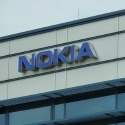Nokia Offers 5G Automation With Next Gen OSS
Finnish vendor dishes up cloud-native network operations software designed to help automate 5G network management processes.

Nokia steamed into MWC month with the launch of a next generation OSS system that runs on cloud platforms and promises to provide telcos with "highly-automated and scalable software" for managing their 4G and 5G networks.
The Nokia Network Operations Master software is, according to Nokia, based on a vendor agnostic, cloud native architecture (Nokia's Common Software Foundation) and aims to help operators manage 4G and 5G networks with "extreme automation" (which presumably must differ from regular automation). It's designed to tackle the increased complexity of 5G networks through the use of machine learning and automated techniques.
As pointed out in Nokia's press release by Dana Cooperson, research director at Analysys Mason, 5G networks "will require significantly more operations automation than past networks in order to achieve promised levels of efficiency and new service support."
Light Reading has long argued that enabling the full potential of 5G will involve significant development efforts across multiple technology types, one of which is next gen OSS that runs on cloud platforms (including public cloud) and incorporates the automation of many processes that are either currently manual or which cannot currently be enabled by existing, legacy network management systems. Indeed, it's already clear that older, manual systems will not be up to the job of supporting 5G.
For sure, operators are already embracing next gen OSS and cloud native technologies to ensure they can effectively manage their early and future 5G deployments. Recent examples include Deutsche Telekom's decision to use Netcracker's Network Domain Orchestration solution, and Telstra's shift to a container-based Evolved Packet Core (EPC) from Ericsson to support its 4G and 5G services. Japan's Rakuten, meanwhile, has embraced 5G-ready systems from the outset.
For more on this topic, see:
— Anne Morris, Contributing Editor, Light Reading
Read more about:
EuropeAbout the Author(s)
You May Also Like












